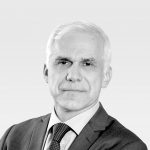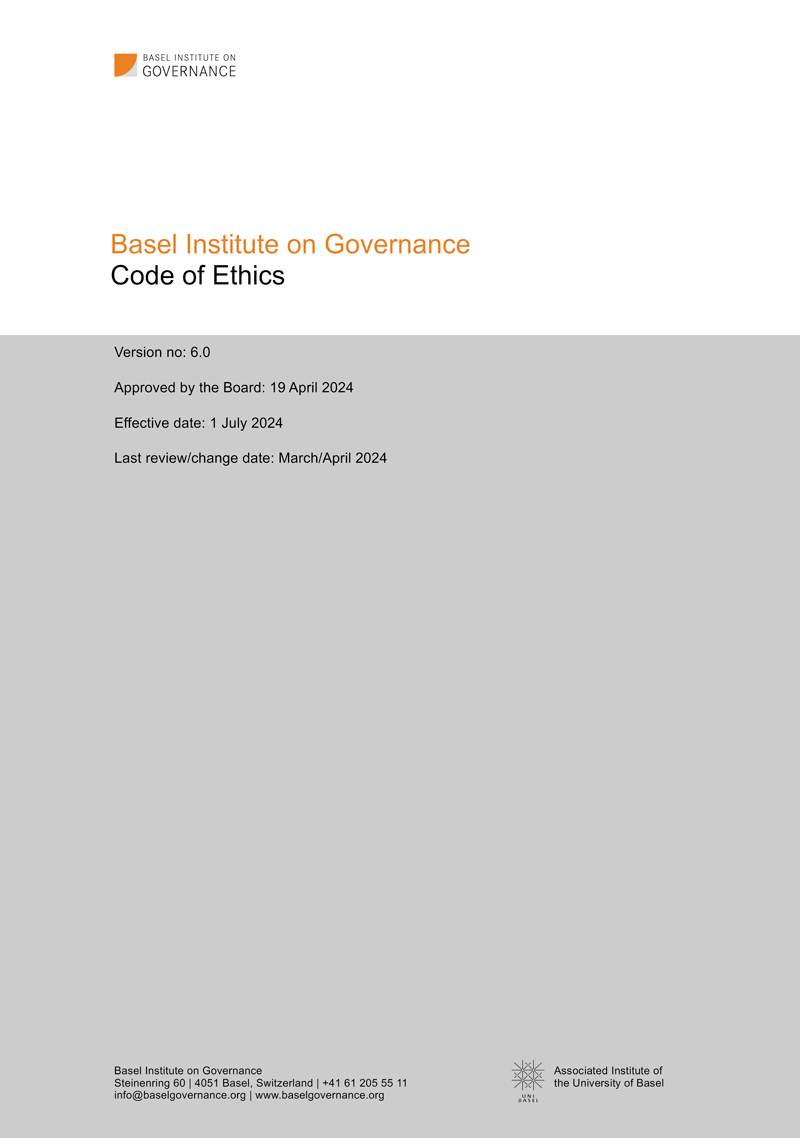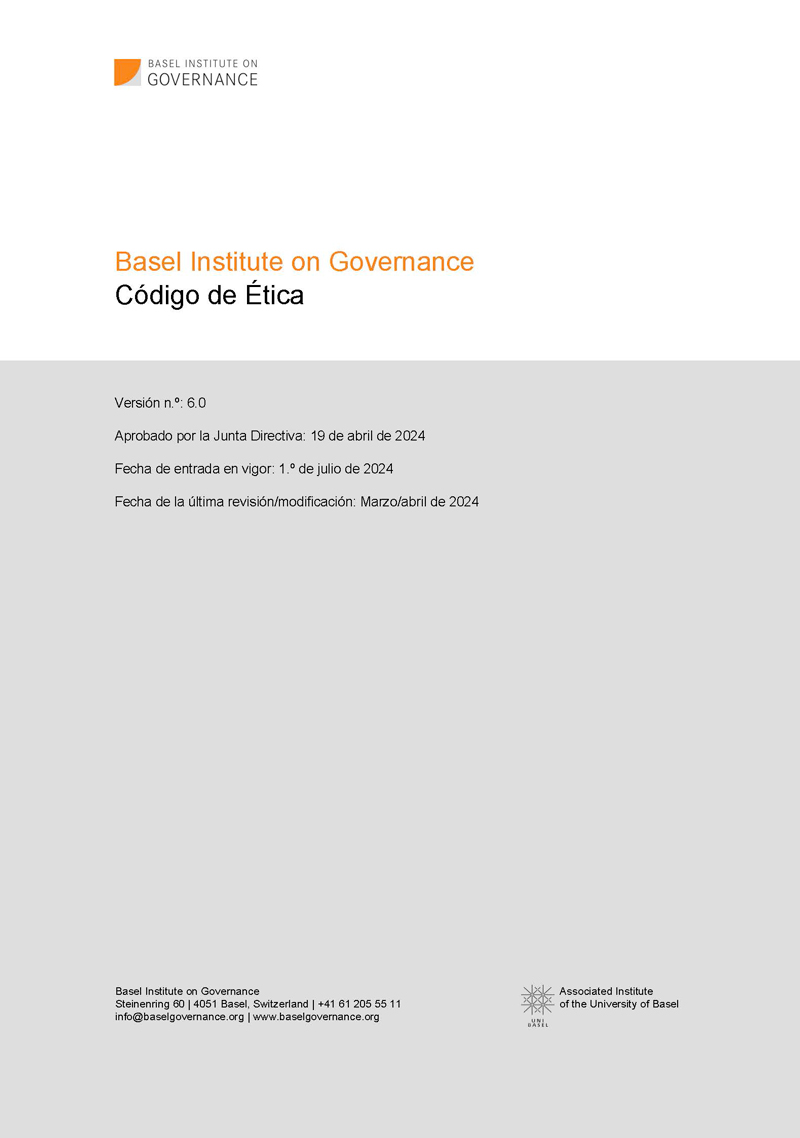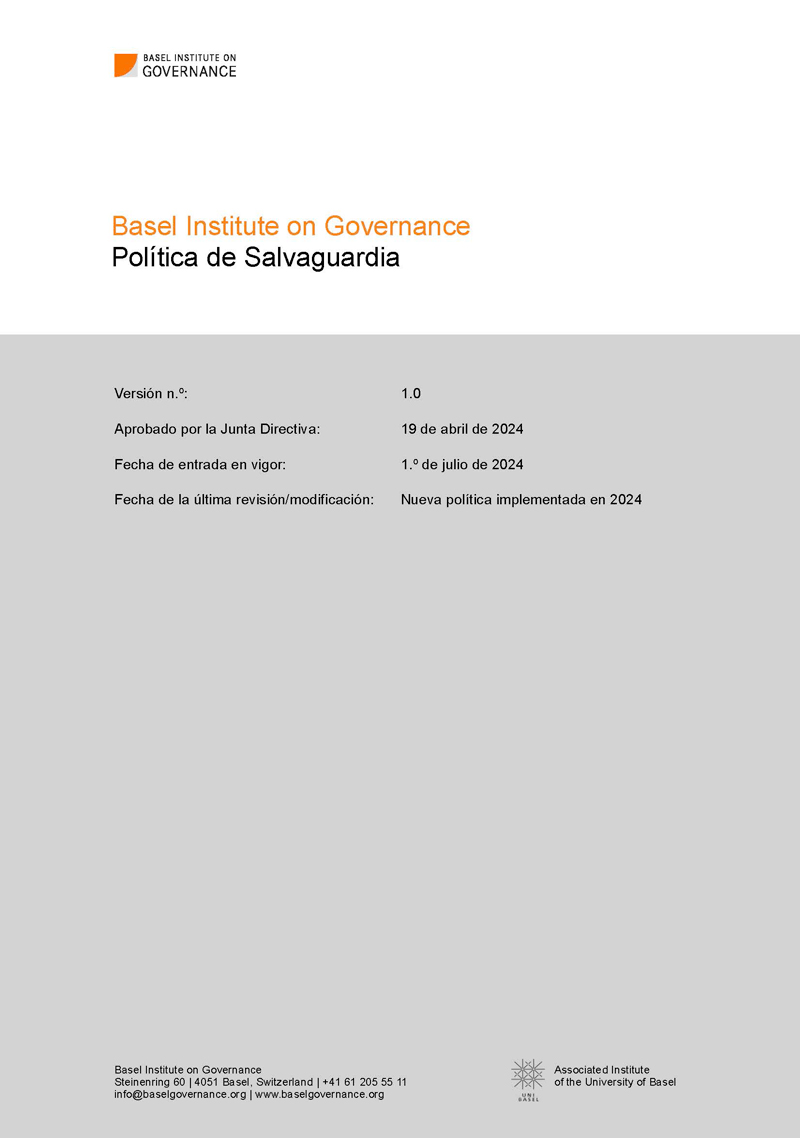Governance and compliance
Ethics underpins everything we do at the Basel Institute on Governance. Our ethical values guide not only our mission to fight corruption and strengthen governance, but also how we work and the values we uphold.
Our values are set out in our Code of Ethics and reflected in our daily work across all countries and contexts. We are committed to protecting the people who work for and with us, including through strong safeguarding measures that promote both physical safety and wellbeing.
Foundation Board
The Foundation Board of the Basel Institute on Governance provides strategic oversight and guidance to the organisation.
It supervises and monitors the activities of the Core Management Team, advises on organisational matters and takes key decisions that shape the Institute’s operations and long-term strategy. This ensures that our work remains transparent, accountable and aligned with our principles.
Current members of the Board are:
Organisational structure
The Basel Institute’s organisational structure is designed to support our multidisciplinary and holistic way of working.
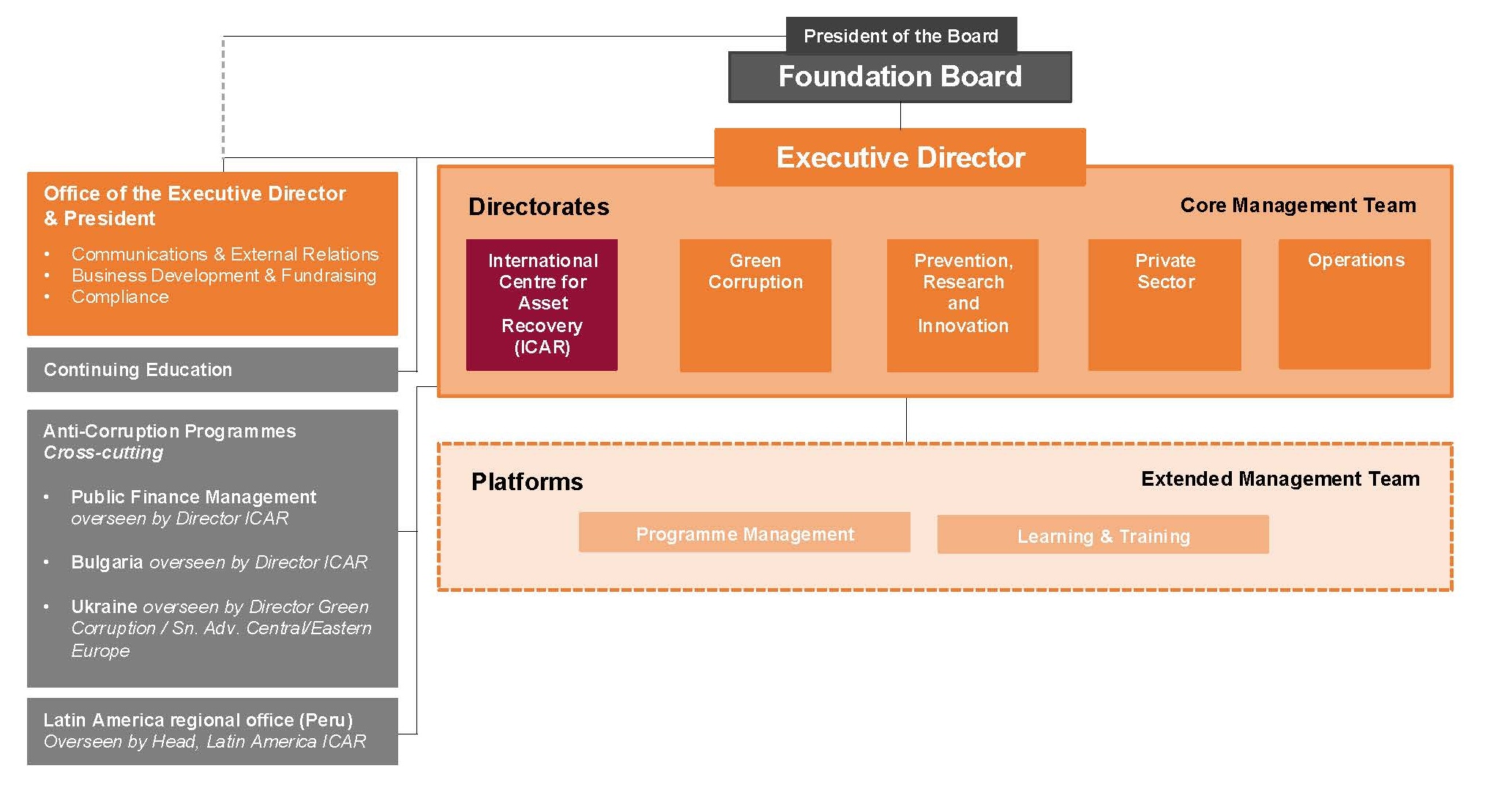
We consist of several Directorates with specialised expertise and networks. These work closely together depending on the programme or challenge at hand. The Directorates are:
- International Centre for Asset Recovery
- Private Sector
- Prevention, Research and Innovation
- Green Corruption
- Management, Resources and Operational Support (Operations)
Directors report to the Executive Director, who in turn reports directly to the Foundation Board and its President. The Executive Director and Directors form the Core Management Team.
Supporting the Executive Director, President and Core Management Team are our Communications, Business Development and Compliance functions. Cross-cutting anti-corruption programmes are overseen by different Directors according to their areas of expertise.
The Extended Management Team includes the Core Management Team and the leaders of key operational platforms, currently focused on programme management as well as on learning and training. These platforms enhance efficiency, coherence and continuous improvement across the organisation.
To remain agile and context-sensitive, the Institute also operates through regional hubs in Latin America, Africa and Ukraine.
Compliance framework
Our compliance framework ensures that our values are embedded in everything we do. It provides the structure, policies and tools needed to promote integrity, transparency and accountability at all levels of the organisation.
Compliance Committee
The Compliance Committee was established on 1 September 2025 with the following standing members:
Relevant directors or senior staff may participate in Compliance Committee meetings, depending on the topic under discussion.
The Compliance Committee’s responsibilities cover: policies and procedures; general oversight; risk management and internal controls; and resourcing and capacity.
Policies and guidelines
Our policies and procedures are organised into three levels to ensure consistency and clarity.

- Level 1: Code of Ethics. The Code of Ethics sets out the core values and principles that guide the behaviour and decision-making of all staff. It defines the ethical foundations of our culture, promoting integrity, accountability and ethical conduct. It is the cornerstone of our compliance framework.
- Level 2: Primary and secondary policies
- Primary policies establish high-level rules and principles, grounded in relevant national and international laws, standards and best practices. This category includes the Anti-Bribery and Anti-Corruption Policy, Data Privacy Policy, Safeguarding Policy and Staff Policy. Primary policies are reviewed and approved by the Foundation Board.
- Secondary policies provide more detailed guidance on specific topics and help translate high-level principles into practice. Examples include the Procurement Policy, Security Policy and Communications Policy. Secondary policies are reviewed and approved by the Compliance Committee.
- Level 3: Guidelines and procedural documents. Guidelines and manuals offer practical, day-to-day direction on how to implement our policies. They support staff in applying principles consistently and effectively across the organisation. Examples include our Visual Design Guidelines, Quality Assurance and Peer Review Guidelines, and Expense Claim Guidelines.
Compliance ambassador programme
To ensure that our compliance framework is applied consistently and remains sensitive to local realities, we launched the Compliance Ambassador Programme in September 2025.
An employee in each region – Latin America, Africa and Ukraine – dedicates part of their time to supporting the compliance programme locally. Their main tasks are to:
- Promote a culture of compliance and ethical conduct.
- Serve as a liaison between the Chief Compliance Officer and field staff, supporting training and communications.
- Support local risk assessments and monitoring activities as requested.
- Assist in the roll-out of new compliance initiatives and projects.
- Channel feedback from field staff to the Chief Compliance Officer, such as policy gaps or implementation challenges.
- Support translations of compliance-related documents, training and communications.







